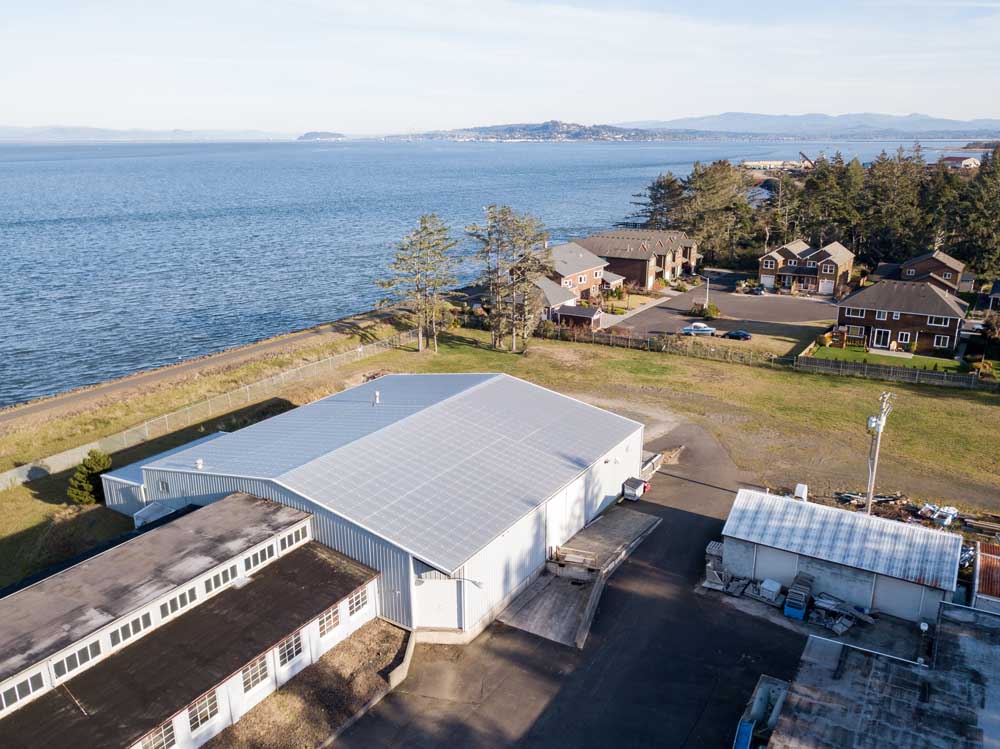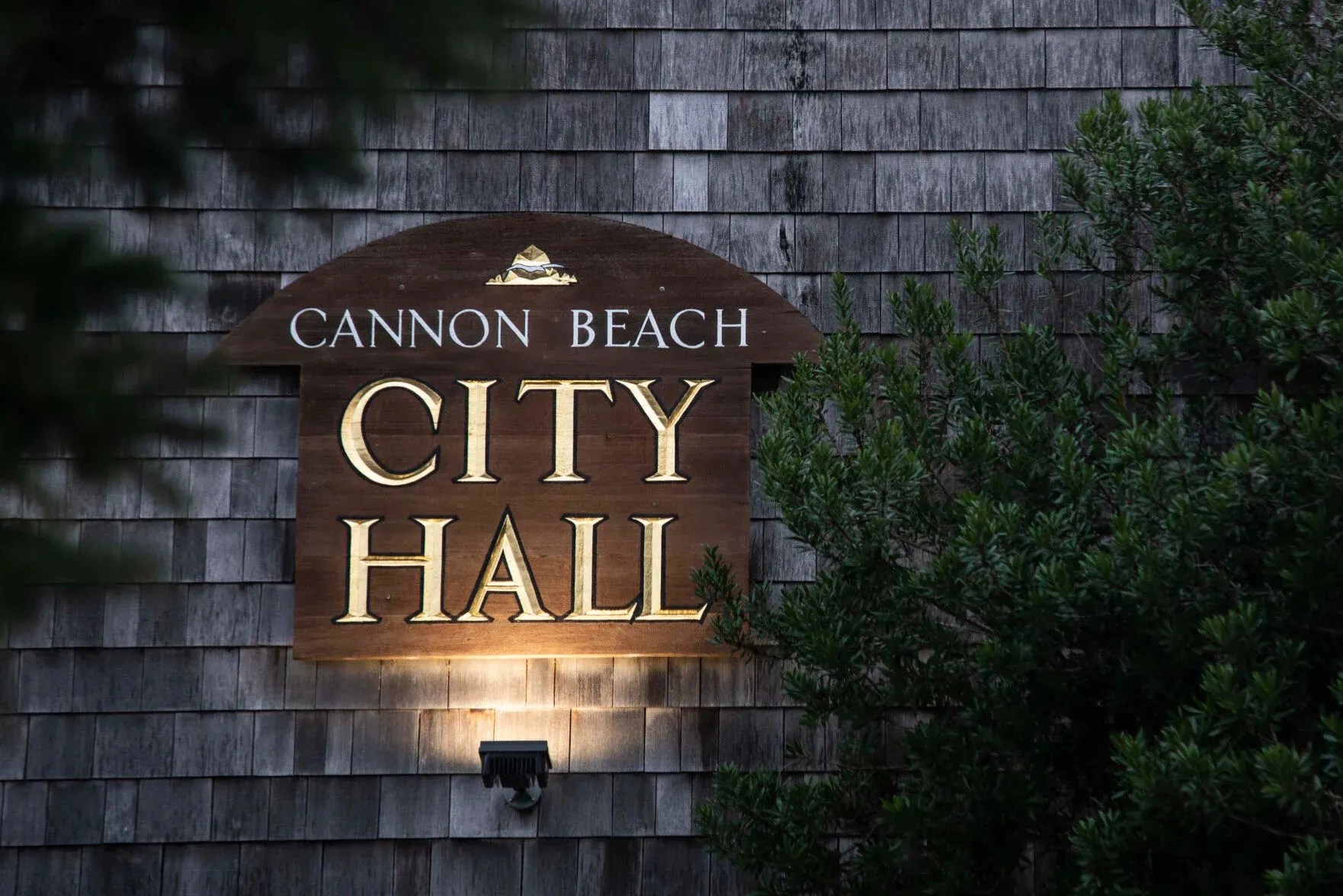Residents fear the unknown in Pacific Seafood’s bunkhouse
Published 3:00 pm Friday, November 8, 2019

- The future location of Pacific Seafood's dormitories sits near a residential neighborhood along the Columbia River in Warrenton.
WARRENTON — Bunkhouses with hundreds of workers have long been commonplace in the seafood processing hubs of Alaska.
But the communal housing concept is a new one in Oregon and for residents of the cul-de-sac at 17th Place southeast of Hammond, near where Pacific Seafood hopes to house nearly 100 of the employees it buses to the Warrenton plant.
Neighbors are worried about density but are mostly resigned to the dorms likely moving forward. They are hoping the company will help protect their views of the Columbia River and keep the seasonal employees away from their cul-de-sac.
Last year, Pacific Seafood unveiled plans to turn a portion of its Hammond fabrication shop into a bunkhouse. The company is also pursuing employee housing for a plant in Newport.
Pacific Seafood has claimed it is far below the 300 people needed to operate at full capacity because of a tight housing market, a common complaint of local employers. It buses in up to 150 workers during peak processing season between May and November, said John King, general manager of the company’s Warrenton plant.
The City Commission earlier this year approved a code amendment allowing the dorms as a conditional use. The Planning Commission delayed a vote on the project’s conditional use permit until Thursday.
Company representatives have noted the competitive housing market, including the share taken up by vacation rentals and second homes. King said hiring challenges are exacerbated by seafood processing and tourism peaking in the same season.
“The whole area is in competition,” he said. “Everybody around is just fighting for workers.”
The seafood processor hopes to put in 88 beds. Elizabeth Bingold, associate general counsel for Pacific Seafood, said the company would only have one bed per worker, as opposed to different shifts sharing the same bed, known as “hot racking.”
The dorms would include one bathroom and shower area for each six residents, a kitchen, a lounge, a badminton court and an outdoor seating area overlooking the Warrenton Waterfront Trail and Columbia River. The fabrication shop will continue to operate in the eastern portion of the complex.
“The goal is to make this a nice place to live, and to have people enjoy working for Pacific and being here,” Bingold said.
Good neighbor
Gil Gramson, a former mayor and city manager in Warrenton, lives next to Pacific Seafood’s property at the end of 17th Place. He secured a zone change in the early 2000s from industrial water-dependent shorelands to pave the way for housing.
“The number of people they’re going to be putting there is excessive,” Gramson said. “You’re looking right at 100 people. This is an industrial area next to us, and no one ever anticipated there would be that many people living in one area.”
A good-neighbor agreement approved by the Planning Commission in September requires Pacific Seafood to shuttle residents to work and shopping to limit traffic, install signs to limit noise, perform background checks and promptly remove trouble employees.
The company would be required to erect fencing around the dorm property. Residents have signed a petition asking the Planning Commission to nix a requirement for the company to build a buffer of trees and shrubs at least 10 feet high around the property, arguing it would take away their views of the river and hurt property values.
“Why would you want to disturb the view of everyone surrounding it?” asked Barbara Balensifer, a former mayor who has lived for more than 50 years on the southern flank of the fabrication shop. “We bought homes with what we’re looking at now.”
The good-neighbor agreement asks that workers avoid using surrounding side streets. Neighbors want the company to provide direct access to the Waterfront Trail, rather than them using a walkway from 17th Place.
“We’ll request them to not block our views, and to install a gate and passage directly to the riverwalk,” said Scott Widdicombe, who lives on the eastern edge of the property.
To appease neighbor concerns, Kevin Cronin, the city’s community development director, said he is recommending a performance standard that would limit the number of beds in the dorms to 70 for the first year.
“If there are no major issues (in the first year), then they get to go up to 90 beds,” he said. “I’m giving them the incentive to do the right thing. And if all goes well, they’ll operate a 90-bed facility.”
Housing workers
Pacific Seafood’s project is the most extensive among several efforts by employers to cope with the housing market. It could set a precedent for other employee housing projects.
Bornstein Seafoods recently purchased an apartment complex near its Warrenton Deep Sea Market, offering units at a competitive rate to its employees. Andrew Bornstein, co-owner of the processor, said the units are occupied by an equal mix of employees and existing tenants, who the company didn’t want to displace.
“I’d say they have had a small, positive tangible impact,” he said. “It’s a hard one to measure, but I think there are certainly people within the company that are greatly appreciative of having a lower cost option for housing in a market that is fairly expensive for apartments.”
Columbia Memorial Hospital in Astoria has long provided rentals for visiting physicians. Pelican Brewing provides apartments for employees at its brewery in Cannon Beach, along with a house in Manzanita.
Developer Randy Stemper is overseeing the construction of the 37-unit Skipanon View Apartments slated to open in the spring, walking distance from Pacific Seafood’s Warrenton plant. Stemper said he approached the company about leasing the property but was turned down.
Company representatives were not immediately available for comment on why they didn’t pursue the offer. Cronin’s assumption was that they determined it would cost less to refurbish the fabrication shop than invest in new apartments.
Cronin and King chalk much of neighbors’ concerns up to the fear of the unknown. But the company has signed on to the good-neighbor agreement and will screen employees working at the plant and staying at the dorm.
“We’ve been part of this community for 37 years, and we want to be here for a long time. We want to make sure we’re putting our best foot forward and doing the right thing,” King said.






